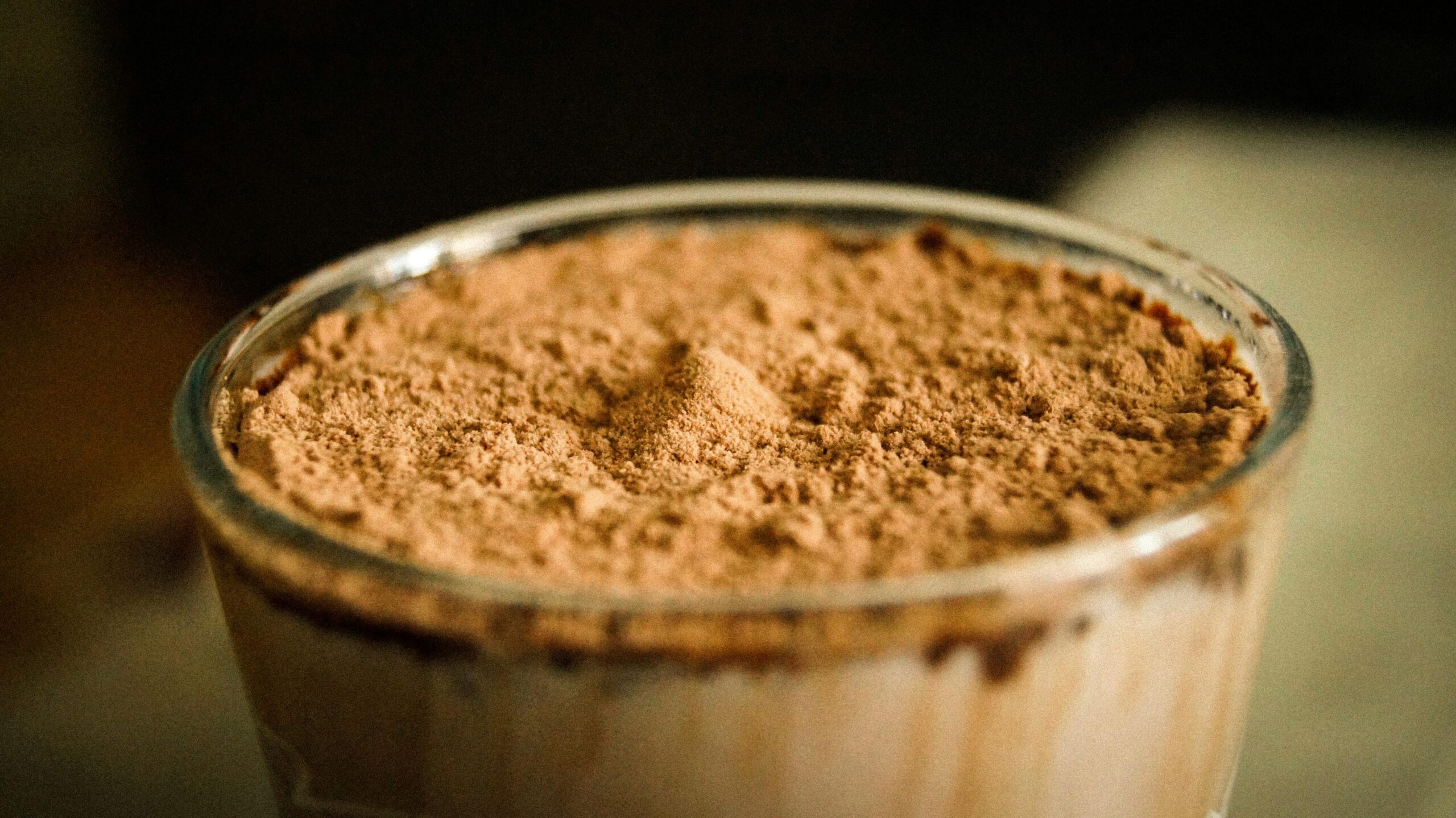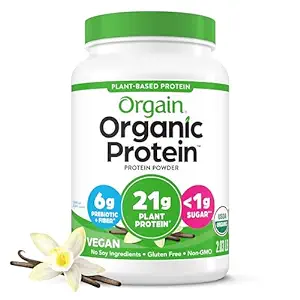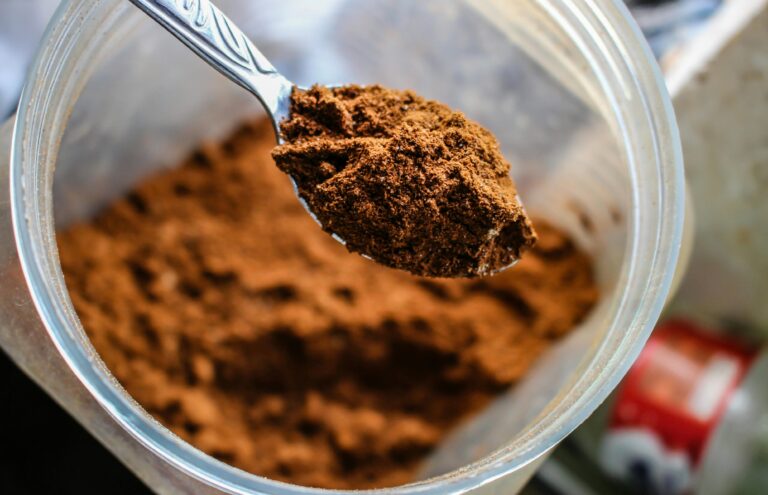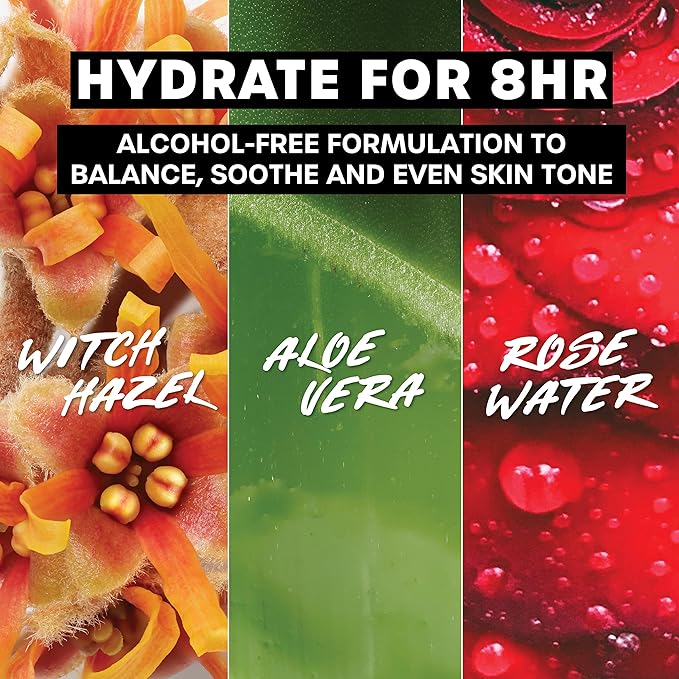Why Choose Plant-Based Protein Powder? A Comprehensive Guide
Introduction
In recent years, plant-based protein powders have gained significant popularity among health enthusiasts, athletes, and those looking to improve their diet. These powders, derived from various plant sources, offer a range of benefits that make them a compelling choice over traditional animal-based proteins. This comprehensive guide explores the reasons behind the rising popularity of plant-based protein powders, their health benefits, environmental impact, and practical uses.
Chapter 1: Understanding Plant-Based Protein Powder
1.1 What is Plant-Based Protein Powder?
Plant-based protein powder is a dietary supplement made from various plant sources, such as peas, hemp, rice, soy, and chia seeds. These powders are processed to extract the protein content, providing a concentrated source of protein that can be easily added to shakes, smoothies, and recipes.
1.2 Types of Plant-Based Protein Powders
- Pea protein is known for its high digestibility and balanced amino acid profile.
- Hemp protein is rich in omega-3 and omega-6 fatty acids.
- Rice protein is easily digestible and hypoallergenic.
- Soy Protein: Complete protein with all essential amino acids.
- Chia seed protein is high in fiber and antioxidants.
- Pumpkin Seed Protein: Contains a variety of nutrients, including magnesium and zinc.
Chapter 2: Health Benefits of Plant-Based Protein Powder
2.1 Nutritional Profile
Plant-based protein powders offer a rich array of nutrients, including essential amino acids, vitamins, and minerals. They are also high in fiber, which aids in digestion and promotes a feeling of fullness.
2.2 Digestive Health
Many plant-based proteins are easier to digest compared to whey or casein proteins, which can cause digestive issues in some individuals. Pea protein, for instance, is known for its high digestibility.
2.3 Weight Management
Plant-based proteins can help with weight management by promoting satiety. The high fiber content in these proteins helps control appetite and reduces overall calorie intake.
2.4 Muscle Growth and Recovery
Contrary to popular belief, plant-based proteins can be just as effective as animal-based proteins for muscle growth and recovery. Soy and pea proteins, in particular, have been shown to support muscle protein synthesis effectively.
2.5 Allergen-Free Options
For individuals with dairy or gluten allergies, plant-based protein powders provide a safe and effective alternative.
Chapter 3: Environmental Impact of Plant-Based Protein Powders
3.1 Lower Carbon Footprint
Producing plant-based proteins generally requires fewer resources and generates less greenhouse gas emissions compared to animal-based proteins.
3.2 Sustainable Agriculture
Plant-based protein sources often promote sustainable farming practices. Crops like peas and hemp can improve soil health and require fewer pesticides.
3.3 Water Conservation
Growing plant-based protein sources typically requires less water than raising livestock, making them a more sustainable choice in water-scarce regions.
Chapter 4: Choosing the Right Plant-Based Protein Powder
4.1 Protein Content and Amino Acid Profile
When selecting a plant-based protein powder, it’s essential to consider the protein content and the amino acid profile. Opt for powders that provide a complete amino acid profile or combine different plant proteins to ensure you get all essential amino acids.
4.2 Added Ingredients
Check for added sugars, artificial flavors, and preservatives. Choose products with minimal ingredients and those that use natural sweeteners like stevia or monk fruit.
4.3 Certification and Testing
Look for certifications such as organic, non-GMO, and third-party testing to ensure the quality and purity of the protein powder.
4.4 Flavor and Texture
Taste and texture can vary widely among plant-based protein powders. It may take some experimentation to find a brand and flavor you enjoy.
Chapter 5: Incorporating Plant-Based Protein Powder into Your Diet
5.1 Smoothies and Shakes
One of the most popular ways to consume plant-based protein powder is by adding it to smoothies and shakes. This not only boosts the protein content but also adds flavor and nutrients.
5.2 Baking and Cooking
Plant-based protein powders can be used in baking recipes, such as protein bars, muffins, and pancakes. They can also be added to soups, stews, and sauces to increase their protein content.
5.3 Meal Replacement
Protein powders can serve as a convenient meal replacement when mixed with a variety of ingredients to create a balanced meal.
5.4 Post-Workout Recovery
For athletes and fitness enthusiasts, plant-based protein powders can be an excellent post-workout recovery option, helping to repair muscles and replenish energy stores.
Chapter 6: Myths and Misconceptions about Plant-Based Protein
6.1 Incomplete Proteins
A common misconception is that plant-based proteins are incomplete and do not provide all essential amino acids. However, many plant-based protein powders are formulated to offer a complete amino acid profile.
6.2 Lower Protein Quality
Some believe that plant-based proteins are of lower quality compared to animal-based proteins. Research shows that certain plant proteins, like soy and pea, can match the effectiveness of whey protein.
6.3 Taste and Texture Issues
While it’s true that some plant-based protein powders may have a gritty texture or distinct taste, advancements in food technology have significantly improved their flavor and mouthfeel.
Chapter 7: FAQs About Plant-Based Protein Powder
7.1 Is plant-based protein powder suitable for vegans?
Yes, plant-based protein powders are entirely plant-derived and suitable for vegans.
7.2 Can I use plant-based protein powder for muscle building?
Absolutely. Plant-based proteins like soy and pea protein are effective for muscle building and recovery.
7.3 Are there any side effects of plant-based protein powders?
Most people tolerate plant-based protein powders well, but some may experience digestive issues with certain types. It’s best to start with a small amount and gradually increase it.
7.4: How do plant-based protein powders compare to whey protein?
Plant-based proteins can be as effective as whey protein in supporting muscle growth, with the added benefit of being hypoallergenic and more sustainable.
7.5 Can children consume plant-based protein powder?
Children can consume plant-based protein powder in moderation as part of a balanced diet. It’s best to consult with a pediatrician.
7.6 What is the shelf life of plant-based protein powder?
Most plant-based protein powders have a shelf life of 1–2 years. Check the packaging for specific expiration dates.
7.7. How should I store my plant-based protein powder?
Store in a cool, dry place, and keep the container tightly sealed to maintain freshness.
7.8. Can plant-based protein powder help with weight loss?
Yes, the high protein and fiber content can help with weight loss by promoting satiety and reducing overall calorie intake.
7.9 Are plant-based protein powders hypoallergenic?
Many plant-based protein powders are hypoallergenic, but it’s essential to check the ingredients for potential allergens.
7.10: What is the best time to take plant-based protein powder?
There is no specific best time, but common times include post-workout, as a meal replacement, or as a snack.
7.11: Can I mix plant-based protein powder with hot liquids?
Yes, but be aware that high heat can denature some of the protein, potentially affecting its nutritional value.
7.12: Is plant-based protein powder good for older adults?
Yes, it can help older adults meet their protein needs, which are essential for maintaining muscle mass and overall health.
7.13. How do I know if I’m getting enough protein?
Consult with a healthcare provider or nutritionist to determine your protein needs based on your age, activity level, and health goals.
7.14 Are there any artificial ingredients in plant-based protein powders?
Some brands may contain artificial ingredients. It’s essential to read labels and choose products with natural ingredients.
7.15: Can I travel with plant-based protein powder?
Yes, you can travel with it. Just ensure it’s in a sealed container and complies with any travel regulations regarding powders.
7.16: What are the best plant-based protein powders for beginners?
For beginners, pea and rice protein powders are excellent choices due to their digestibility and mild flavor.
7.17 How much protein should I consume per day?
The recommended daily intake varies, but a general guideline is 0.8 grams of protein per kilogram of body weight. Athletes may require more.
7.18: Can I use plant-based protein powder if I’m pregnant or breastfeeding?
Yes, but it’s advisable to consult with a healthcare provider to ensure it fits your dietary needs during pregnancy or breastfeeding.
7.19 Do plant-based protein powders contain all essential amino acids?
Many plant-based protein powders are formulated to contain all essential amino acids, especially those that blend different protein sources.
7.20: Can I use plant-based protein powder to replace meat in my diet?
Yes, plant-based protein powders can be an effective way to meet your protein needs without consuming meat.
Conclusion
Plant-based protein powders offer a versatile, nutritious, and environmentally friendly alternative to animal-based proteins. Whether you’re looking to build muscle, manage your weight, or simply lead a healthier lifestyle, incorporating plant-based protein powder into your diet can provide numerous benefits. With the right knowledge and products, making the switch to plant-based protein is a rewarding and sustainable choice.


 click here to buy
click here to buy






One Comment